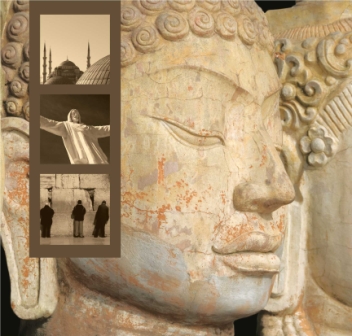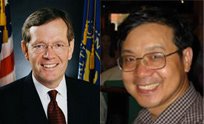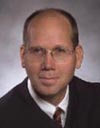15th Annual International Law and Religion Symposium
The Fifteenth Annual Law and Religion Symposium, “International Protection of Religious Freedom: National Implementation,” 5-8 October 2008

The International Center for Law and Religion Studies at Brigham Young University held its fifteenth annual law and religion symposium, “International Protection of Religious Freedom: National Implementation,” at Brigham Young University on 5-8 October 2008. This symposium gathered judges and other legal practitioners, government officials and national policymakers, and scholars from more than 40 countries to address issues arising from attempts to implement international protections of religious freedom at a national level. Because national implementation gives rise to critical issues in providing practical guarantees for freedom of religion or belief, this topic is both timely and essential. The Center thanks all those – delegates, hosts, fellows, friends, law school staff, and volunteer law students – whose hard work made the 2008 symposium a resounding success.
Keynote Speakers: Secretary Michael Leavitt and Professor Doctor Zhou Xinping

Participants in the Fifteenth Annual Symposium were privileged to enjoy the remarks of keynote speakers Michael O. Leavitt, U.S. Secretary of Health and Human Services, and Doctor Zhou Xinping, Director of the Institute of World Religions at the Chinese Academy of Social Sciences and the Center for the Study of Christianity in the People’s Republic of China. Secretary Leavitt and Dr. Xinping spoke at the Opening Session of the Symposium on October 5.
Secretary Leavitt spoke about the practical role of religion and the government: “I suggest that religion and government should always be maintained as separate, but religious freedom and religious rights are not only in the interest of the people, they are in the interest of the nation.” He also explained that, in his experience, if he wanted to “find where the energy was within my community,” he needed to “turn to organizations such as churches.” He stated that these organizations could “each out and touch the hearts of people” and that this was important for governments to remember in seeking to administer programs.
Dr. Zhou Xinping reported on the role of religion in China. He discussed the situation that currently exists in China: “the freedom of religious beliefs remains a basic principle in the constitution of the Peoples Republic of China,” but there are, as yet, no decisive religion laws. He explained that there are many challenges creating a comprehensive religion law and discussed a few proposals for consideration. Secretary Leavitt’s and Dr. Xinping’s thoughtful addresses opened the Symposium and set the tone for two-and-a-half days of superb scholarly and practical discussion of the issues of national implementation of international protection of religious freedom.
Judge Jordan Delivers Closing Remarks at 2008 Annual Symposium

The Center was privileged to hear from Judge Kent A. Jordan of the United States Court of Appeals for the Third Circuit at the Concluding Dinner for the Washington, D.C., portion of the 2008 Annual Symposium. These remarks on October 9, 2008, served as the perfect close to a very successful and informative symposium. The Center and all participants very much appreciated Judge Jordan’s involvement and his willingness to share his professional expertise and perspectives in the area of national implementation of freedom of religion or belief.
Annual Symposium 2008: “International Protection of Religious Freedom”

BYU Law Review Volume 2009, No. 3
The 2008 Symposium addressed issues arising from attempts to implement international protections of religious freedom…